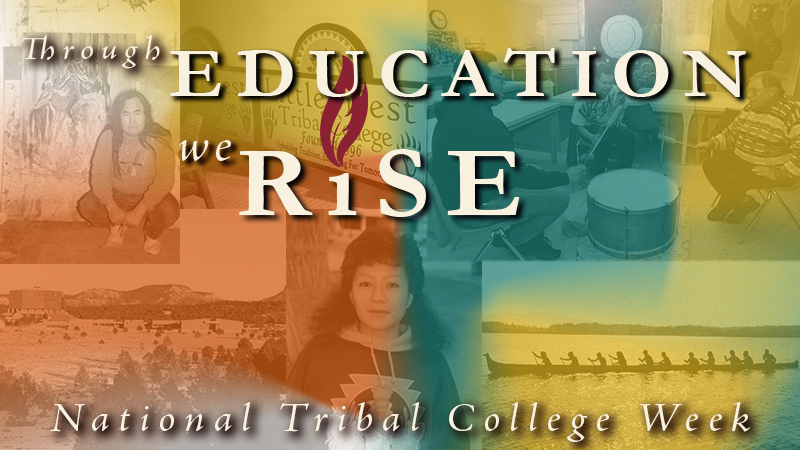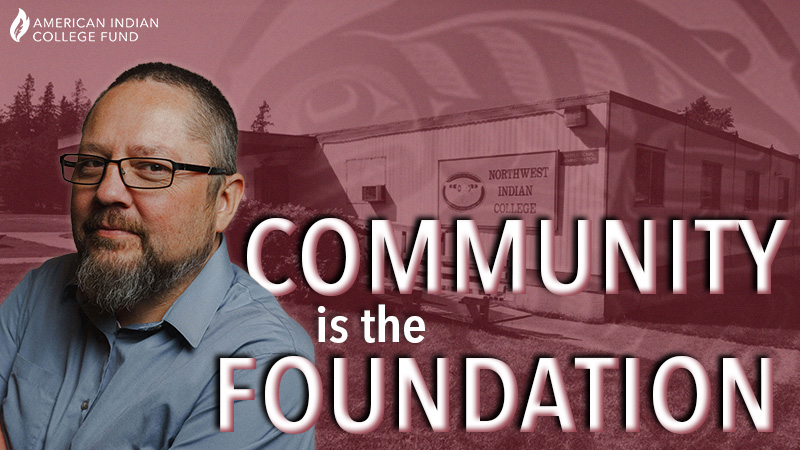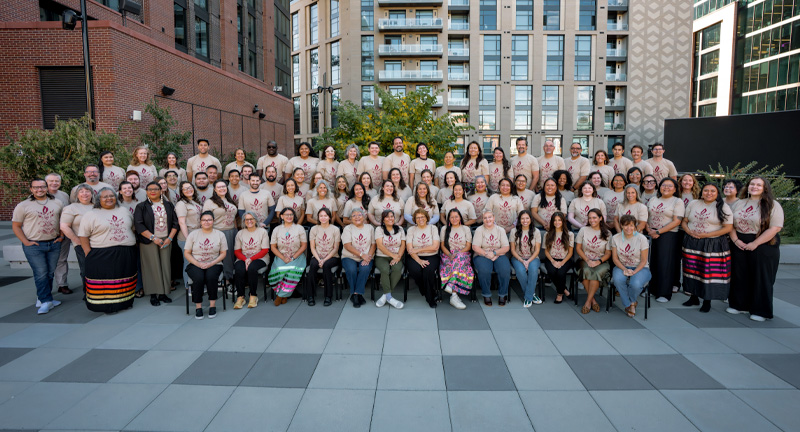BOSTON – Salt®, the best-in-class education-consumer literacy program provided by the nonprofit American Student Assistance®, is pleased to announce a partnership with the American Indian College Fund (the College Fund) to support tribal colleges and universities nationwide in offering money management advice, personalized student loan help, and straightforward budgeting tools free-of-charge to students and alumni.
“American Indians face steep barriers to higher education and the lifelong dreams that education enables,” said John Zurick, president and CEO of American Student Assistance. “We are thrilled to work with like-minded organizations like the American Indian College Fund to expand Salt’s essential services to the underserved students and families who need them most.”
Under the arrangement announced today, the College Fund is joining with ASA to underwrite the sponsorship of Salt at accredited, College Fund-supported tribal colleges and universities nationwide. Any of the 35 College Fund-affiliated tribal colleges and universities can now choose to offer their students and alumni Salt’s full suite of digital services, including the program’s online personal finance curriculum; a Repayment Navigator to track loans and compare repayment plans; search engines for scholarships and careers/internships; an online community to ask questions of peers and experts; and blogs, articles, videos, calculators, tools, and apps that teach users how to take control of their finances. Salt users can also access one-on-one counseling with a loan specialist via email and chat. All Salt services are free-of-charge to students and alumni.
College Fund tribal colleges that have already signed on with Salt include College of Menominee Nation in Wisconsin, Fort Peck Community College in Montana, Ilisagvik College in Alaska, Nebraska Indian Community College, Oglala Lakota College in South Dakota and Sitting Bull College in North Dakota.
The high cost of college today puts higher education out of reach for many American Indians. According to the American Community Survey 2014, more than 28 percent of American Indians live below the poverty line, compared to the national poverty rate of 15.5 percent for the overall population. American Indians today account for only 1 percent of all college students, and have the lowest educational attainment rates of all ethnic and racial groups. Only 13.6 percent of American Indians earn a college degree, often due to the unique challenges of living in remote, rural areas.
Tribal colleges and universities are located on or near Indian reservations and offer educational programs tailored for American Indian students. The tribal colleges and universities the College Fund supports serve more than 17,000 students enrolled in academic programs and more than 100,000 community members who are enrolled in academic programs, job training, high school equivalency classes and other programs. The average cost of attendance at a TCU is approximately $16,355 per year — far less than the average “sticker price” of $42,000+ at a four-year nonprofit institution, but still a heavy burden for many students and families.
“We know education is the answer to lifting Native people out of poverty and up the economic ladder,” said Cheryl Crazy Bull (Sicangu Lakota), American Indian College Fund president and CEO. “Yet today, far too many in our community are shut out of educational opportunity, or fail to recognize the full-potential of their education after the fact, simply because they couldn’t navigate the student aid process or didn’t know how to responsibly finance the cost of college. Salt will help us transform Indian higher education by offering students access to the financial knowledge and skills that ensure a future of prosperity for themselves, their families, their communities and the country as a whole.”
About Salt and American Student Assistance
Salt, powered by the nonprofit American Student Assistance, is an education finance support program that helps remove the financial barriers to higher education so students and alumni can freely and confidently pursue their dreams. Salt leverages ASA’s 60 years of experience managing student debt to empower students to successfully plan for, pay for, and repay their higher education. The program is underwritten by ASA as well as 300 higher education institutions, nonprofits, and employers who partner to successfully guide millions of students and alumni through the financing process. With a combination of financial education, personalized student loan advice, and straightforward budgeting tools, Salt’s unbiased advisors help them make smart decisions about education costs so they can achieve a positive financial future. Visit saltmoney.org or asa.org for more information.
###
CONTACT:
Allesandra Lanza
American Student Assistance
617.728.4631









